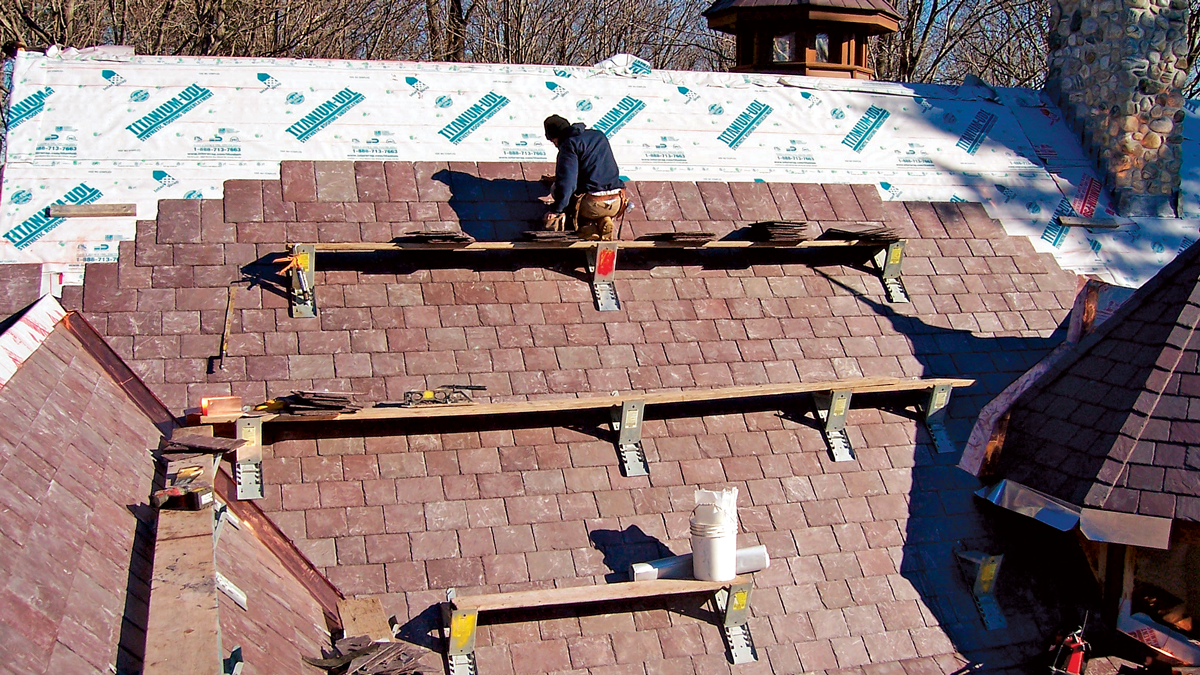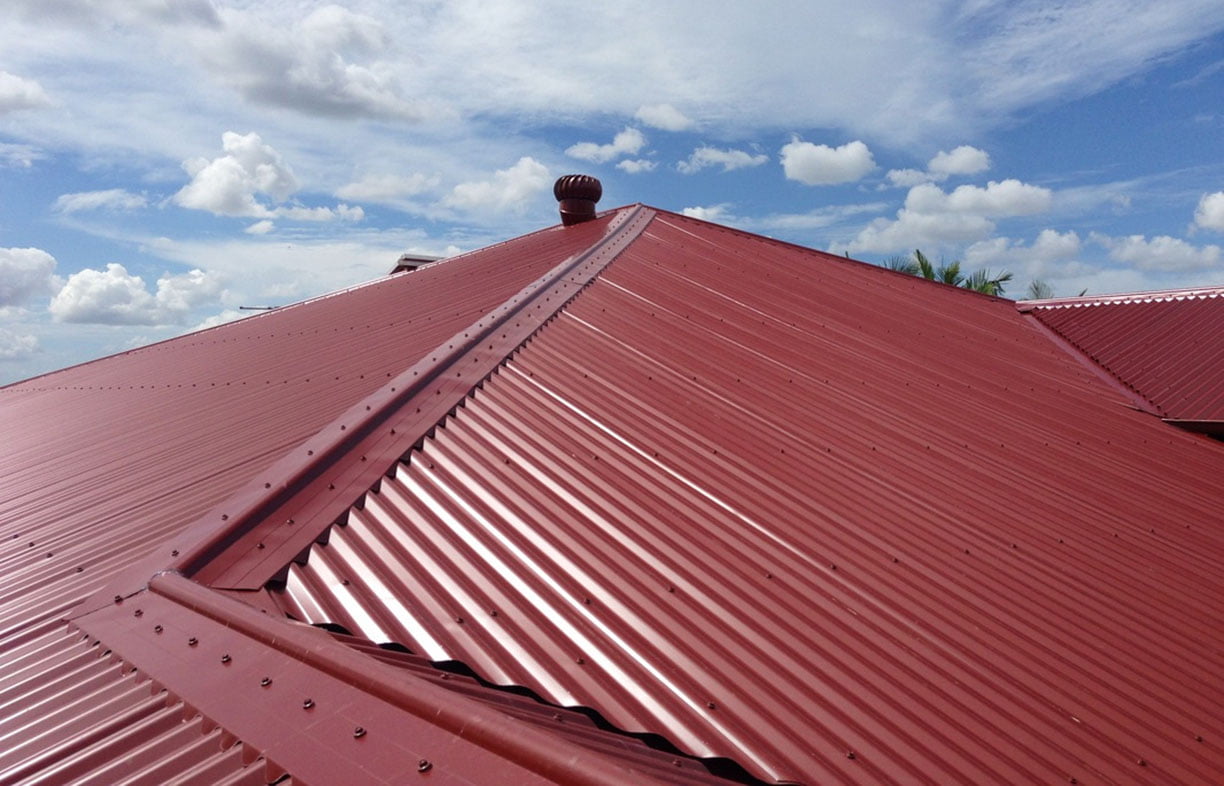Metal roofing has become increasingly popular among homeowners seeking durability, energy efficiency, and long-term value. If you’re considering a metal roof for your 2,000 square foot home, understanding the costs involved will help you make an informed decision and budget appropriately.
Average Cost Range
For a 2,000 square foot house, you can expect to pay between $14,000 and $40,000 for a complete metal roof installation. This wide range reflects differences in material types, complexity of installation, and regional labor costs.
Basic Cost Breakdown
- Budget option: $7-10 per square foot ($14,000-$20,000 total)
- Mid-range option: $10-15 per square foot ($20,000-$30,000 total)
- Premium option: $15-20+ per square foot ($30,000-$40,000+ total)
Factors That Affect Metal Roof Costs
Material Type
The type of metal you choose significantly impacts the total cost:
Steel Roofing ($7-12 per sq ft): The most affordable option, steel roofing offers good durability and comes in various colors and finishes. Galvanized and galvalume steel are popular choices that resist corrosion.
Aluminum Roofing ($9-16 per sq ft): Lightweight and naturally rust-resistant, aluminum works well in coastal areas. It’s more expensive than steel but offers excellent longevity.
Copper Roofing ($15-25 per sq ft): A premium option that develops a distinctive patina over time. Copper roofs can last over 100 years but come with a significantly higher upfront cost.
Zinc Roofing ($12-18 per sq ft): Self-healing properties and exceptional durability make zinc an attractive long-term investment, though initial costs are substantial.
Roof Style and Profile
Different metal roofing styles affect both material and labor costs:
- Standing seam: $10-16 per sq ft – Sleek, modern appearance with concealed fasteners
- Metal shingles: $8-14 per sq ft – Mimics traditional roofing materials
- Corrugated panels: $7-12 per sq ft – Most economical option, often used for agricultural buildings
- Metal tiles: $10-18 per sq ft – Replicates clay or slate tile appearance
Installation Complexity
Several roof characteristics can increase installation costs:
- Steep slopes: Require additional safety equipment and slower installation
- Multiple angles and dormers: Complex designs need more labor and materials
- Existing roof removal: Adding $2-5 per square foot to dispose of old materials
- Structural reinforcement: Older homes may need additional support
Geographic Location
Labor costs vary significantly by region. Urban areas and regions with higher costs of living typically see 20-40% higher installation costs compared to rural areas.
Additional Cost Considerations
Permits and Inspections
Most areas require building permits for roof replacement, typically costing $100-500. Some municipalities also require inspections, which may add another $100-300 to your project.
Accessories and Upgrades
- Gutters and downspouts: $5-15 per linear foot
- Snow guards: $2-8 per linear foot (essential in snowy climates)
- Upgraded underlayment: $0.50-2 per square foot
- Ridge vents and ventilation: $300-800 total
- Skylight installation: $800-2,500 per skylight
Removal of Existing Roof
If your current roof needs removal, expect to pay an additional $2-5 per square foot ($4,000-$10,000 for a 2,000 sq ft home). However, some metal roofing can be installed over existing asphalt shingles, potentially saving this cost.
Long-Term Value and Savings
While metal roofing requires a higher upfront investment than asphalt shingles, it offers substantial long-term benefits:
Energy Efficiency
Metal roofs reflect solar heat, potentially reducing cooling costs by 10-25%. In hot climates, this can save $100-400 annually on energy bills. ENERGY STAR-certified metal roofing materials are designed to reflect more sunlight and absorb less heat than standard roofing materials.
Durability and Lifespan
Quality metal roofs last 40-70 years compared to 15-30 years for asphalt shingles. This longevity means you may never need another roof replacement.
Insurance Benefits
Many insurance companies offer discounts of 5-15% for metal roofs due to their resistance to fire, wind, and hail damage.
Resale Value
Metal roofs typically recoup 60-70% of their cost in increased home value, making them a solid investment.
Tips for Managing Costs
Get Multiple Quotes
Obtain at least three quotes from licensed, insured contractors. Prices can vary significantly between companies.
Consider Timing
Schedule installation during off-peak seasons (late fall or early spring) when contractors may offer better rates.
Don’t Skimp on Quality
While it’s tempting to choose the lowest bid, investing in quality materials and experienced installers prevents costly problems later.
Metal roofs that meet ENERGY STAR certification standards may qualify for federal tax credits of up to 30% of costs, with maximum credits of $1,200 for energy efficient property costs. Metal roofs with pigmented coatings that meet Energy Star certification standards are eligible for federal tax credits. Additionally, many states and local utilities offer rebates for energy-efficient roofing upgrades.
Explore Financing Options
Many roofing companies offer financing plans. Metal roofing that meets ENERGY STAR certification standards may qualify for federal tax credits, helping offset the initial investment cost.
While it’s tempting to choose the lowest bid, investing in quality materials and experienced installers prevents costly problems later.
Helpful Resources and Tools
Cost Calculators
- Roofing Calculator: Uses Google Project Sunroof’s LiDAR measurements for accurate roof measurements and cost estimates
- Omni Calculator Metal Roof Tool: Calculate material needs and costs based on roof dimensions
- Inch Calculator Metal Roofing Tool: Estimate panels needed and material costs
- PITCH Roofing Calculator: Free online tool providing personalized estimates
Energy Efficiency Information
- ENERGY STAR Cool Roofs: Official information about energy-efficient roofing materials and benefits
- Department of Energy Cool Roof Guide: Federal guidance on cool roof products and efficiency requirements
- Cool Roof Rating Council (CRRC): Directory of tested and rated cool roofing products
Tax Credit Resources
- IRS Energy Efficient Home Improvement Credit: Official IRS information about federal tax credits for energy-efficient improvements
- ENERGY STAR Federal Tax Credits: Comprehensive guide to available federal energy efficiency tax credits
Conclusion
Installing a metal roof on a 2,000 square foot house typically costs between $14,000 and $40,000, depending on material choice, roof complexity, and local factors. While the initial investment is substantial, metal roofing’s durability, energy efficiency, and low maintenance requirements make it an excellent long-term investment for many homeowners.
Metal roofing costs between $4 and $30 per square foot, with copper being the most expensive at $15-$30 per square foot and aluminum being among the most affordable at $4-$11 per square foot. The wide price range reflects the variety of materials available and installation complexity factors.
Before making your decision, carefully evaluate your budget, local climate conditions, and long-term plans for your home. Take advantage of available cost calculators and tax credit resources to help with your planning. A quality metal roof installation can provide decades of protection and value, making it worth the upfront investment for many homeowners.
Additional Reading
For more information about metal roofing costs and energy efficiency, consider exploring these related topics:
- This Old House Metal Roofing Cost Guide: Comprehensive cost analysis and factors affecting metal roof pricing
- NerdWallet Metal Roof Cost Analysis: Financial considerations and long-term value analysis of metal roofing investments





